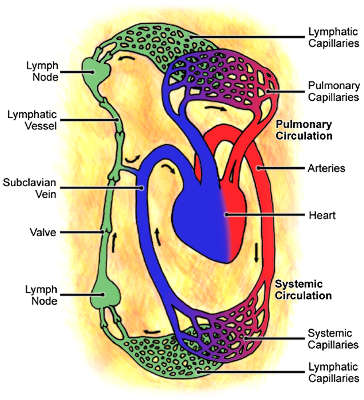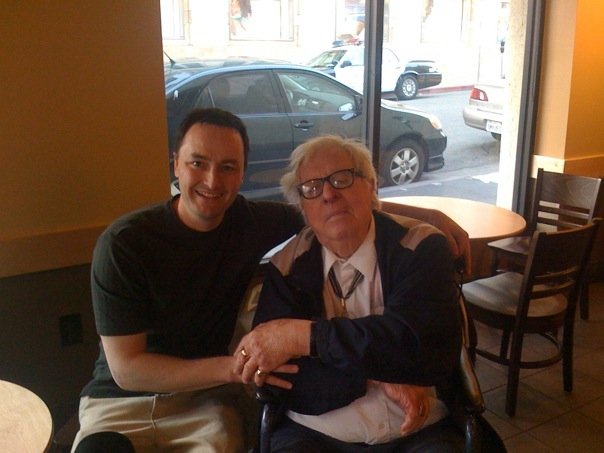Could my body create a problem big enough that it couldn’t fix it? I am going to suggest the answer is no. Our body doesn’t have the ability to kill itself. Its imperatives are too divine. That would be against its own will and nature.
Or better yet can I even know enough about reality to make the above statement with any surety other than my own self-inflated sense of authority? Maybe not in so much as my knowledge is subject to my own limitations. Yikes. Here we go
The creation that I exist in is infinite, eternal, and unchangeable in its being, wisdom, and power. It is all-sufficient, incomprehensible in its fullness, everywhere in its presence and it is a recording of all things.
The creation that I know exists in and of itself and from itself and is in no way dependent on us for its existence. My creation is not served by me, on the contrary, I am served by it.
The creation that I find in my existence is not unique to me but a stream that is constantly flowing in only one direction without variance. Death is the past, the finite time we call life spent whether productive or not, our most valuable asset, time that cannot be recovered because it is past. That is the realm of death. Now, this present existence, is what is flowing through the river of life, the space-time continuum, what we call our experience is one reason why we are here. To observe and to write it down for future generations to look upon to better understand their present life. Our future is hope. Hope is all we have to look forward to because we cannot do anything about it any more than we can change the past. Of course, we can make plans and even try and execute them, but there is no way of knowing if we will succeed. And hope, if well exercised, allows us the benefits of a sort of salve for the bruises we currently receive and experience as we feel our way, with limited vision, around in this world as we move onward and upward.
As far as I can tell it is futile to even imagine a beginning or an end. I don’t have a light bright enough to shine that far back in time to see what a beginning would look like anyways. My history does not begin and end with me, that is the realm of my creator and its creation. It is the beginning and end; I am just along for the ride and the water is nice in this river of water of life.
If I want to know what is the purpose of this creation of mine I need to look no further than the creation around me. Its purpose and function are everywhere; it knows no different. Our creation, its purpose is life, and life more abundant as each opportunity presents itself. If there is any lack of goodness or purpose in the creation around me it is because I or one like me has interfered in the course of nature; the stream of life(all things).
Purpose, symmetry, and asymmetry…Balance.
Apparently, my creator is also very merciful; compassionate in every way imaginable knowing the unusual amount of distress I once embodied as a creation; even to the ignoring of the continual and even willful missing of the mark. That mark and standard being life, in and of itself.
In its infinite wisdom, my creator placed within its creation provision for the inevitability that marks would be missed and messes well made would need to be cleaned up. Not only is my creator compassionate enough to fix my problems but had enough forethought to plan on them.
The creation I enjoy supplies all of my needs even if I don’t understand that some of what I think I need is not as much of a need, but a desire, or something that possesses me; a possession, which is most likely a liability. It is only when I strip away that which possesses me, that I, with sober-minded clarity, see that my needs are very small and always met, it’s just that I have become gluttonous in my creator’s abundance rather than my own understanding.
This creation is one that does not, by nature, cause distress, but that does not mean that I or one like me within creation cannot, or does not, foment that which is distressing. I know…I am a drama-sapien. It is how, in my own head, I add meaning to my existence. If by chance that added meaning, narrative, or for better lack of a term, drama spills out into the creation around me, somehow mercy was there waiting for me too, with a smile; mop in hand.
This garden I know(my body); is planted within creation, crafted by my creator who is clearly slow to anger. Forgiving of inequity and iniquity alike to maintain a creation free from hindrance always working all things back to the center. Ultimately ready to forgive me for both and more.
The lusts and overindulgences I exhibit in this creation are independent of the creator’s explicit creative act and are inconsistent with my creator’s will(direction/flow). My indiscretions are only eggs on my face and in no way a reflection of my creator.
The creator is not difficult to understand, separated from its creation standing by with disinterest; far from it. And if I ever for a moment begin to think that the river of water of life I find myself in is going to stop, reverse, and flow the other way I should just slap myself. That’s just silly. My creator seems to only know ONE WAY—>
My creation does not and cannot suffer. It only knows life and conservation thereof even through death. My creator is without body, parts, or passions. Without emotion, whether grief, pain, or sorrow; knowing only stability and steadiness of course through its action.
I imagine my creator is nothing I could or should even begin to wrap an image around. So far every god I’ve seen fashioned seems to look an awful lot like the creature rather than the creation. That and I might not like what I see if I actually were able to observe it.
And even if I were able to observe such a creator I imagine it would simply invoke more questions than answers in that the answers were likely never intended to be found, much less searched out.
There is no limit to creation, my creator, or its creative powers. Yet I am limited by what I call time. Limited to such a small sliver of my creators existence that it appears immovable; like a rock. Like a statue frozen in time. Like a man with a swatter, chasing after a fly, wrenching out one grand gesture after another while that fly, from its perspective, is making an epic voyage, like Christopher Columbus, across the vast Sea of Kitchen. I imagine we look much like the Statue of Liberty to that annoying imp of a buzzard.
The power and wisdom of our creator are everywhere all at once in balance whether we see all that is being held in balance; homeostasis.
The power of our creator and creation is a life-giving force that flows from one source; our innermost being and it is simpler than we can imagine because it is precisely the fruit and excesses of our imagination that obscures our access to this creative life-giving force within.
That which is called god for better lack of language is always making provision, continually creating for our future, providing for us everything we need even in our ignorance; gross, slight, or acute. Nature doesn’t just rain on individuals but upon us all, even though it might occasionally seem so as it can appear as though the sun doth smile upon us uniquely at times. That is the joy of creation always working towards the center towards balance and homeostasis.
My creator is always right and good and just; factors of which I have no bearing. A unity in the simplicity of its parts that begins with one that becomes everything else fulfilling all creation as intended from a grand illusion we see as a beginning. We couldn’t create a god if we tried because everything that already exists is god in essence and it is I, the hearty fool to think he can improve on perfection.
It was in me all along…
-Michael J. Loomis

